Your cart is currently empty!
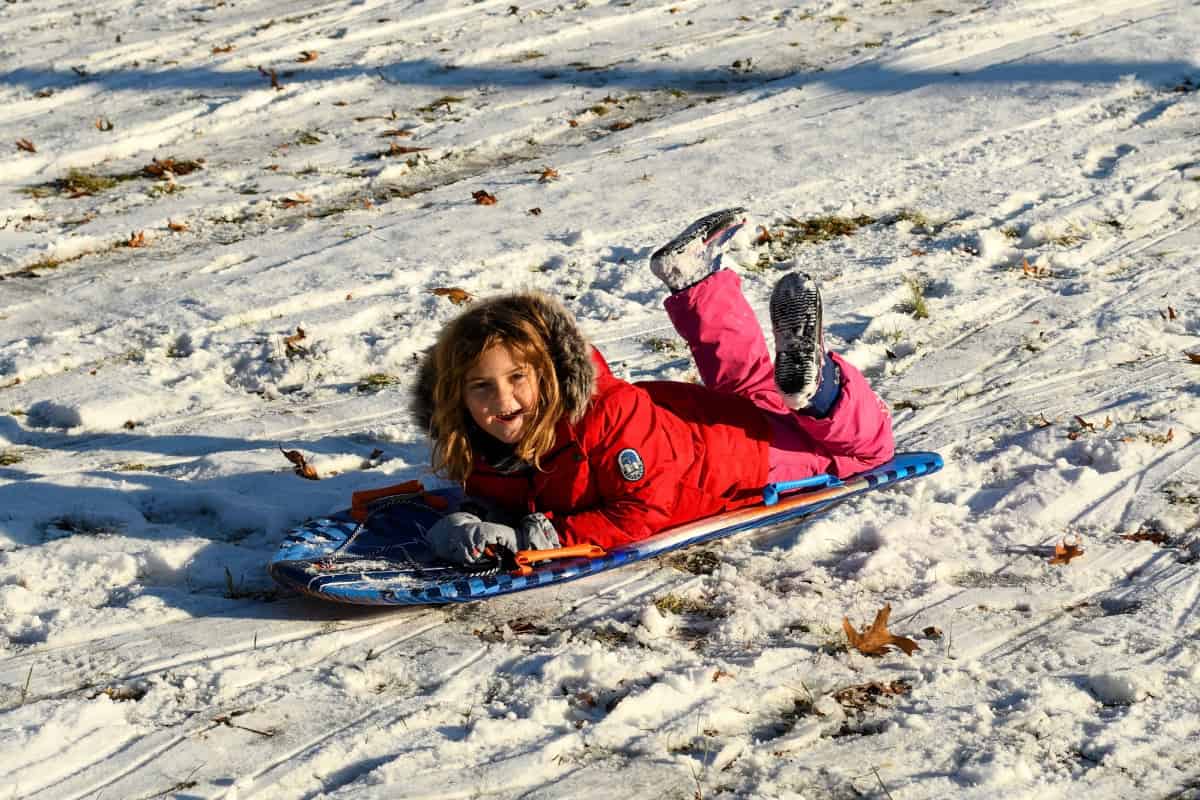
Hidden Benefits of Outdoor Winter Play for Children
As the old saying goes, “Variety is the spice of life!” And nothing provides quite a much variety throughout life as the changes of the seasons. When the seasons change, a whole host of new outdoor activities become available for families and for children. And winter is no exception. Today we have Ginny from 1000 Hours Outside, a homeschooling mom from Michigan (where it is a balmy 21 degrees outside, which may actually feel quite nice depending on where you live) sharing her perspective on the benefits of outdoor winter play. Instead of riding out the frigid temperatures and waiting for spring, we hope this post will encourage you to head outside for some beneficial outdoor winter play!
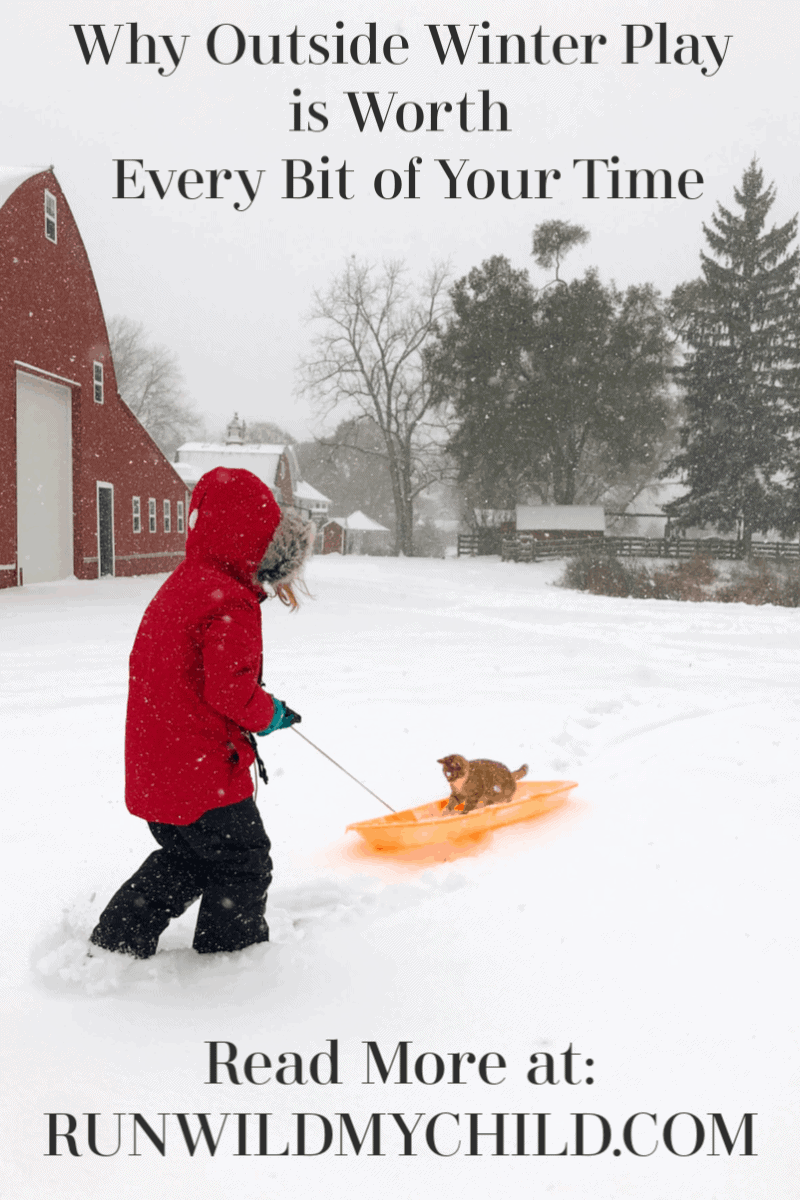
Benefits of Outdoor Winter Play
Winter is worth it
Depending on your location, there will be certain seasons that are more conducive to outside time than others. Winter is probably not too many parents’ favorite season for outdoor play. The gloves, the hats, the scarves, the snow pants, the layers, the whining! We know! We know! It probably takes longer for you to get everyone dressed in their layers than the time you actually spend in the open air. Am I right?
Yes, you’ll have a pile of wet and melting gear afterward. And lots of muddy clothes to wash. But, instead of looking at seasons as good or bad we like to look at them as opportunities to try new things. Yes, winter brings its own set of challenges, but it also brings special magical outdoor activities you can’t do any other time. We promise you that getting outside in the winter months is worth your time and effort! Read on to learn just some of the benefits of outdoor winter play. We just might turn you into a fan of winter after all!
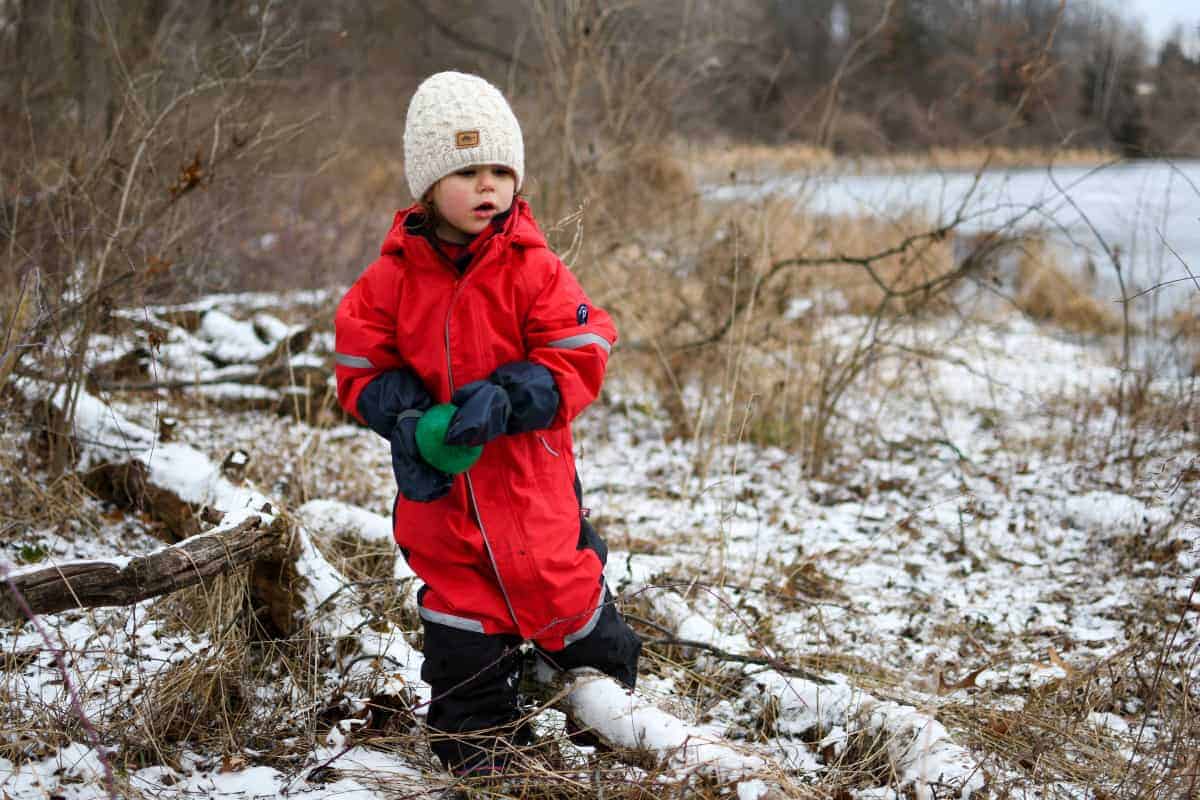
Winter play enhances brain function
Did you know that increasingly complex movements enhance brain function? We tend to think of movements becoming more intricate only through that first year of life. A baby begins by lifting the head and then pushing to all fours. Next, baby is crawling pulling up and finally walking, all within a relatively short span of time. But what then?
After those initial milestones, the milestones continue though not as linearly. Think of the complexity of bike riding and swimming, pitching a baseball and climbing a tree. Children who are given ample time to play outside and try these activities will naturally progress to more difficult bodily movements, all while boosting brain function.
In Smart Moves: (Why Learning is Not All in Your Head), Carla Hannaford, Ph.D. writes “Elderly people who dance regularly decrease their risk of dementia/Alzheimer’s Disease by 76% and those that play a musical instrument decrease the risk by 69%.” These statistics portray the importance of sophisticated movements.
So what, you say. What does all of this have to do with outdoor winter play? Well, I’m so glad you asked! Consider the movements associated with outdoor winter play beginning with the simple act of walking in snow or on ice (in thick/heavy boots and clothing, no less). Immediately, the brain is fired up! This is a new experience – and a complex one. Legs must go higher, balance is tested. Throw in some other activities such as sledding, skiing, ice-skating, snow-shoeing, rolling and even throwing snowballs and you’ve got yourself a season that is filled with opportunities for children to challenge themselves in complex physical ways that benefit their brains and bodies.
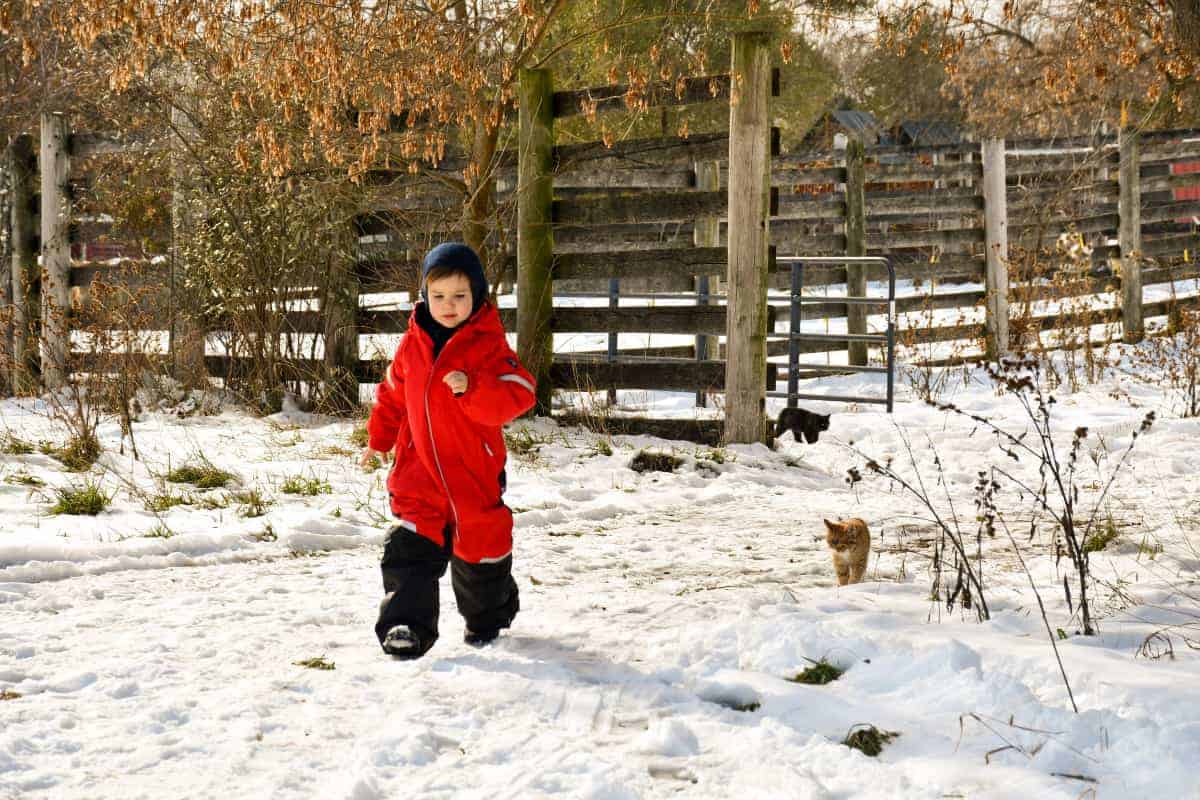
Outdoor winter play enhances creativity
Winter brings all new possibilities for creative play, imagination and construction. Forget sandcastes, build a frozen snow castle! Or snowmen, snow mountains, snow towers, snow forts, snow volcanoes, snow lanterns, snow sculptures, snow cakes, etc. You can paint the snow, eat the snow, and make angels in the snow. Snow and ice offer kids a never-ending supply of elements for creative little minds.
There are endless ideas floating around about using simple things you probably already have on hand like food coloring and bowls to create ice ornaments. Or mix food coloring with water in a spray bottle and letting the kids have at it. Interestingly, there is also so much variation between the types of snow that falls. Is it wet snow? Will it pack? Is it dense or light and flaky? Is it good for sledding? Building snowman? And then how should we dress the snowman? You get the picture!
It can be easy to think of a season where everything seems monochrome as drab, one without possibilities. But the elements of outdoor winter play are so open-ended that we have at our finger-tips a literal blank canvas of endless opportunity! Creative opportunities abound during this marvelous season!
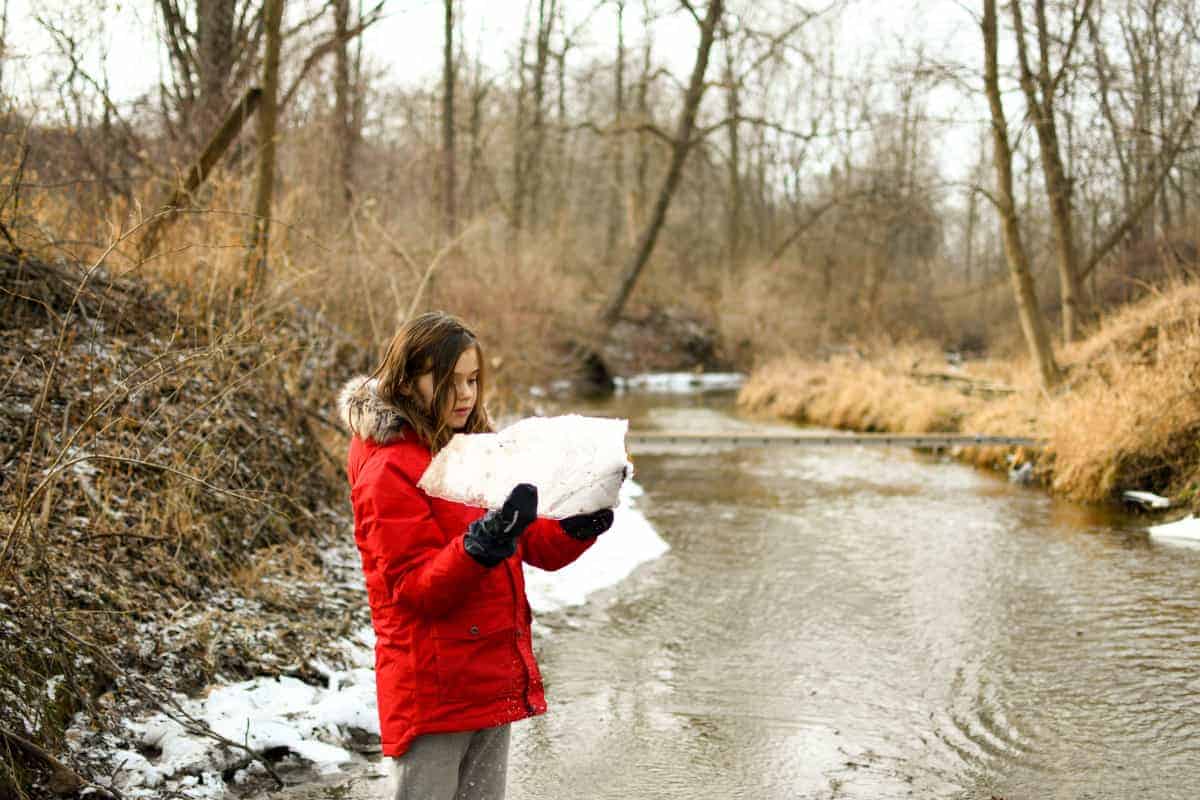
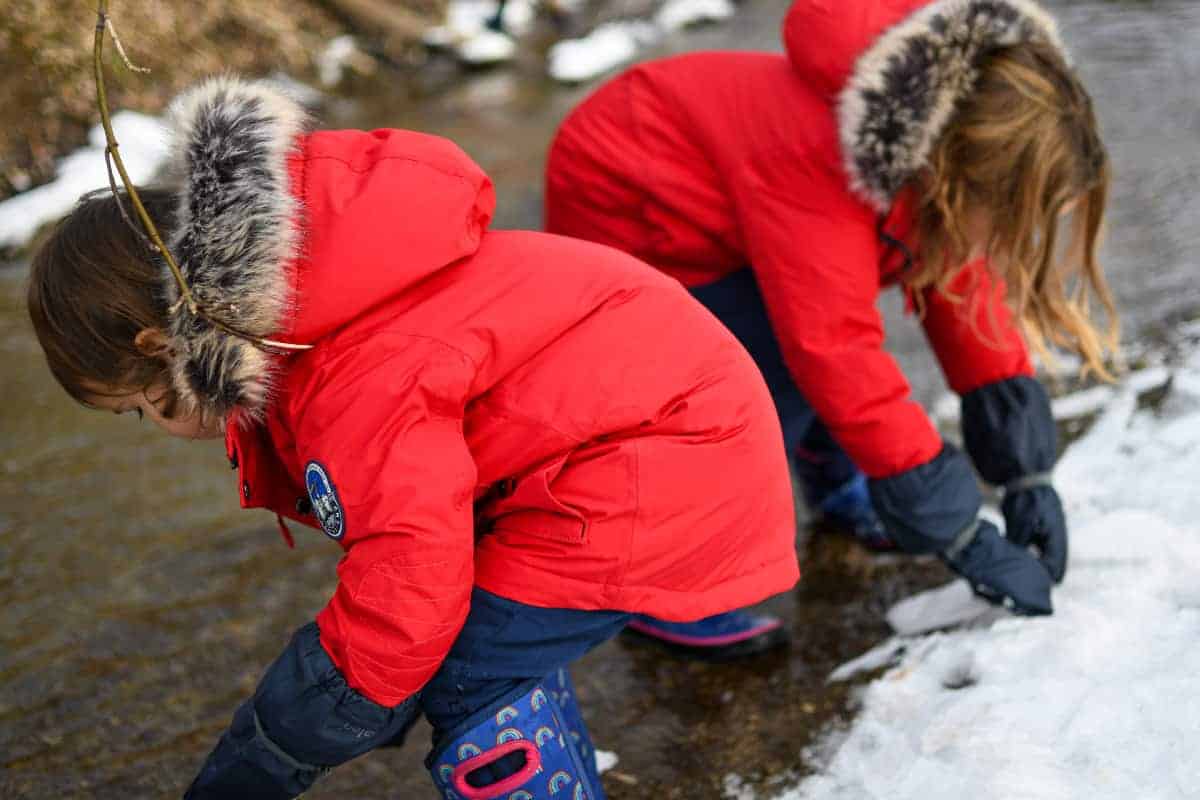
Winter play enhances physical health and development
Fresh air does a body good, but so does movement. A good romp in the snow will get the lymphatic system moving, helping our bodies clear out unwanted toxins. Additionally, these outdoor winter play movements involve muscles that may not get as much use in other seasons. The simple act of pulling a sled up a hill gives the legs a magnificent workout. In what other season would we go up and down hills over and over? This trudging through deep snow time and again does so much for a child’s physical development.
Winter is also a time for advancing core strength. All of the balance work, keeping the body upright while sledding down a hill or slip-sliding across a frozen pond, engages the core. Shoveling helps in the exact same way and is considered “heavy work; that is, any type of activity that pushes or pulls against the body. Heavy work is crucial for developing body awareness.
And while this is great for your child’s physical health, there’s another perk of outdoor winter play you may not be aware of! All of this intense physical activity will inadvertently help your child in academia! Students who have a strong core don’t have to expend energy or constantly think about sitting at a desk. It is a well-known phenomenon that this is something many young people struggle with these days, to the point of even falling out of the chairs at school. There’s such a cross-over between all of these benefits!
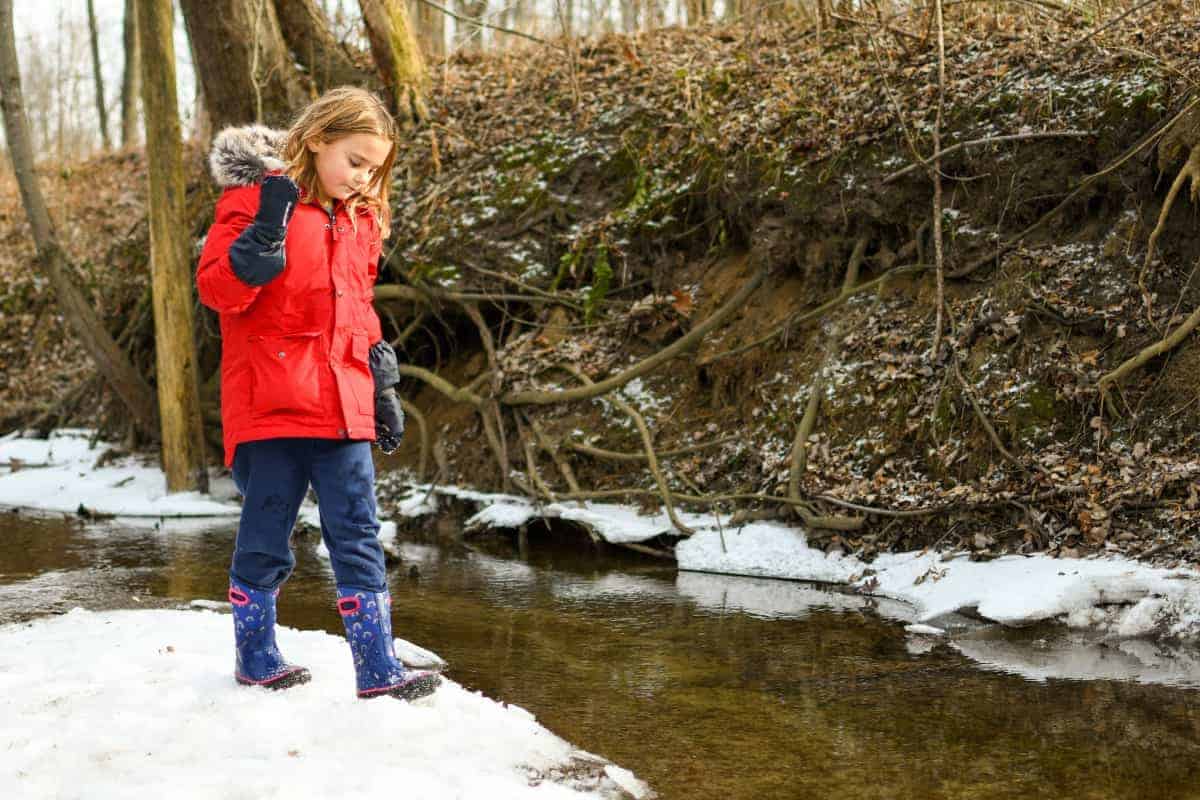 Winter play strengthens relational bonds
Winter play strengthens relational bonds
Outdoor winter play engages all the senses. This is one of the reasons time in nature is often so memorable. Some of my favorite childhood memories are shoveling snow with my dad in the early mornings when it seemed that all the world was fast asleep. I remember the dark, the biting cold, and the rhythmic sounds of the shovel against the cement. I can still recall the huge piles of snow that would accumulate along the edges of the driveway, the bit of observation needs to shovel in the right direction so the wind wouldn’t bring it all right back, I remember that indescribable feeling when you’re all finished and you head inside to warm up.
Isn’t this one the simplest things in life? Shoveling with my dad. Just me and him. It doesn’t seem like the kind of exciting memory that a child would value above so many other super fun and exciting activities, but it mattered. It stuck. Think about it…how many of your fondest childhood memories and moments happened outside? The connections and memories you make outdoors seem to stick with you much longer than others. The magic of childhood can be found in the most ordinary places, most of which are outside!
 Have we convinced you to get outside this winter?
Have we convinced you to get outside this winter?
What are some of your outdoor memories from childhood?
 About the Author
About the Author
Ginny is a Michigan homeschooling mother of five and the founder of 1000 Hours Outside. She is a thought-leader in the world of nature-based play and its benefits for children. Her 1000 Hours Outside Challenge spans the globe and many people from all walks of life look to her for inspiration as well as practical tips on how to put down the screens and get outside. Ginny has a Masters Degree in Education from the University of Michigan and is also a children’s book author and illustrator. Her book, The Little Farmhouse in West Virginia was published in February 2019.
You can find more from Ginny in the following locations:
Website: www.1000HoursOutside.com
Instagram: @1000hoursoutside
Facebook: @1000hoursoutside
RWMC posts: Ginny Yurich
Comments
2 responses to “Hidden Benefits of Outdoor Winter Play for Children”
[…] そんなことを言わないで、ぜひ子どもと雪遊びを楽しんでください。なぜなら、雪の日に外で遊ぶことは子どもの成長にさまざまなメリットがあるんです。今回は「Hidden Benefits of Outdoor Winter Play for Children」と「5 Reasons to Let Your Kids Play in the Snow」の記事を参考に、雪の日の外遊びのメリットを紹介します。 […]
[…] Winter play – Sledding and having a snowball fight. […]
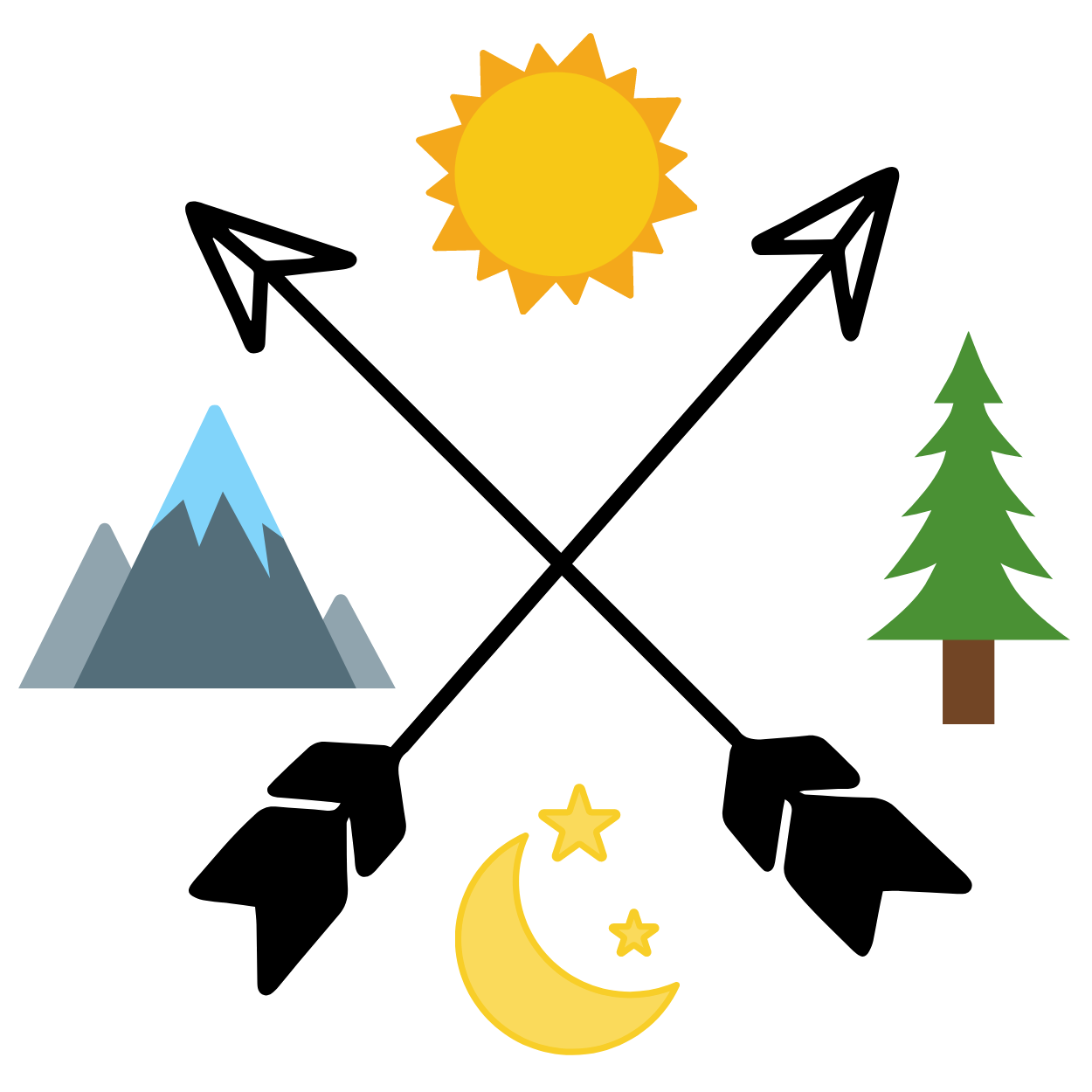
Leave a Reply